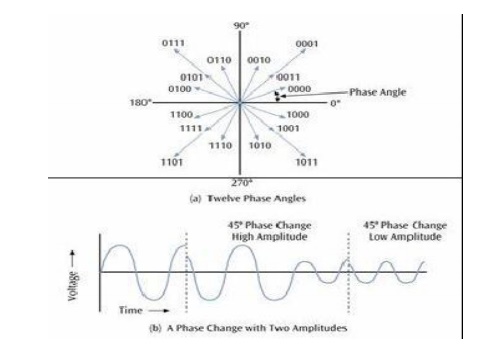Chapter: Analog and Digital Communication
Quadrature Amplitude modulation (QAM)
QUADRATURE AMPLITUDE
MODULATION:
Quadrature
Amplitude modulation (QAM): QAM is a form of
digital modulation similar to PSK except the digital information is
contained in both the amplitude and phase of the transmitted carrier.
·
QAM is a combination of ASK and PSKTwo
different signals sent simultaneously on the same carrier frequency ie,M=4, 16,
32, 64, 128, 256 As an example of QAM, 12 different phases are combined with
two different amplitudes.
· Since
only 4 phase angles have 2 different amplitudes, there are a total of 16
combinations. With 16 signal combinations, each baud equals 4 bits of
information (2 ^ 4 16).
· Combine
ASK and PSK such that each signal corresponds to multiple bits.
More
phases than amplitudes. Minimum bandwidth requirement same as ASK or PSK

Related Topics